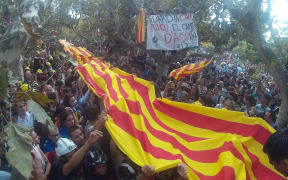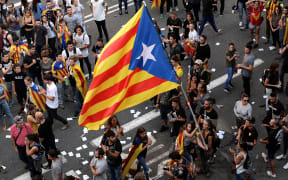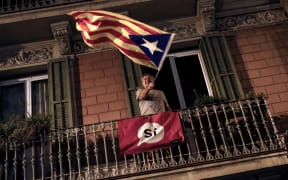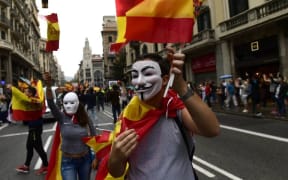The Catalan leader says Spanish Prime Minister Mariano Rajoy's policies have been catastrophic for Catalonia and the region will press ahead with independence plans.
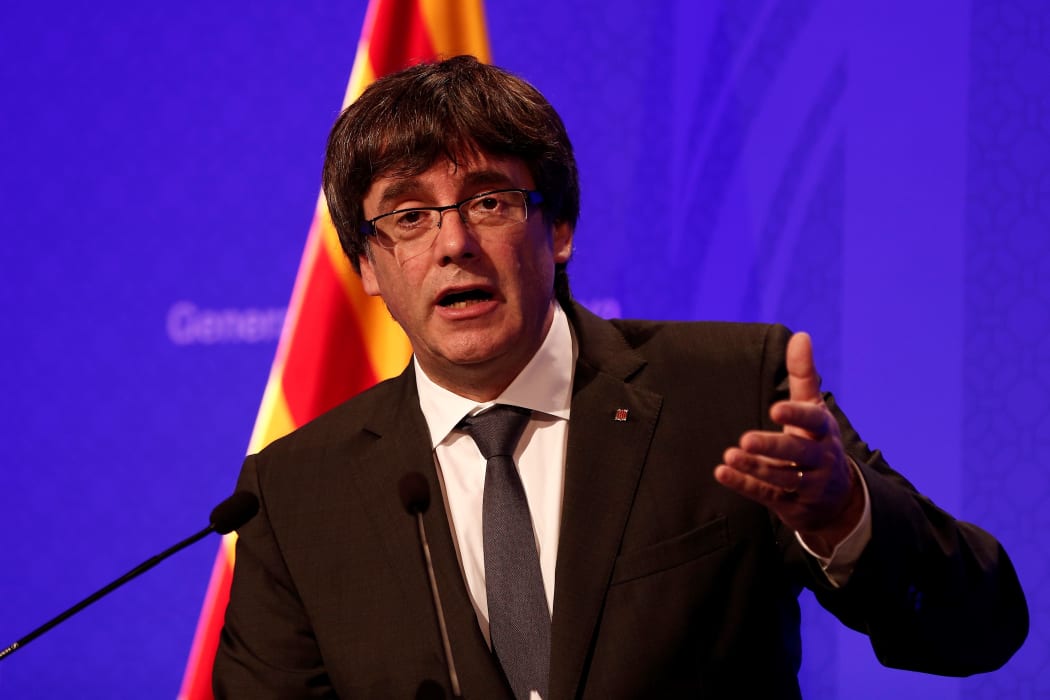
President of Catalonia Carles Puigdemont. Photo: AFP
Mr Puigdemont said he was in favour of mediation to find a way out of the Catalan crisis but that the Spanish government had not accepted it.
Mr Puigdemont told the BBC he would declare independence "at the end of this week or the beginning of next".
Meanwhile, New Zealand has issued a travel advisory for Spain as a result of the Catalonia independence crisis.
The Ministry of Foreign Affairs and Trade's Safe Travel website said New Zealanders in Spain should avoid demonstrations.
It recommends travellers monitor the media and register their travel plans.
This week's independence referendum in Catalonia sparked violent scenes and hundreds of people were injured. There have also been mass demonstrations in the wake of the controversial vote.
Catalonia's plans to declare independence from Spain threatens to rupture the European Union nation's young democracy.
Spain was only restored to democracy following the death in 1975 of military dictator Francisco Franco, under whom the Catalan language and traditions were suppressed.
The European Union said it was "time to talk" to find a solution to the crisis in Catalonia.
Commission Vice-President Frans Timmermans said the Spanish constitution must be followed.
Mr Timmermans, addressing the European Parliament, described the images of violence from Catalonia as "saddening", but emphasised the importance of upholding the rule of law.
In an interview with German newspaper Bild, Mr Puigdemont said he already felt like "a president of a free country where millions of people have made an important decision".
He said the Madrid government's refusal to negotiate had left Catalonia "no other way" than to declare independence and he accused it of authoritarianism.
"The Spanish government is letting political opponents be arrested, it is influencing media and blocking Internet sites. We are under observation day and night," Mr Puigdemont said.
"What is that other than an authoritarian state?"
Spain's King Felipe VI accused secessionist leaders on Tuesday of shattering democratic principles and dividing Catalan society.
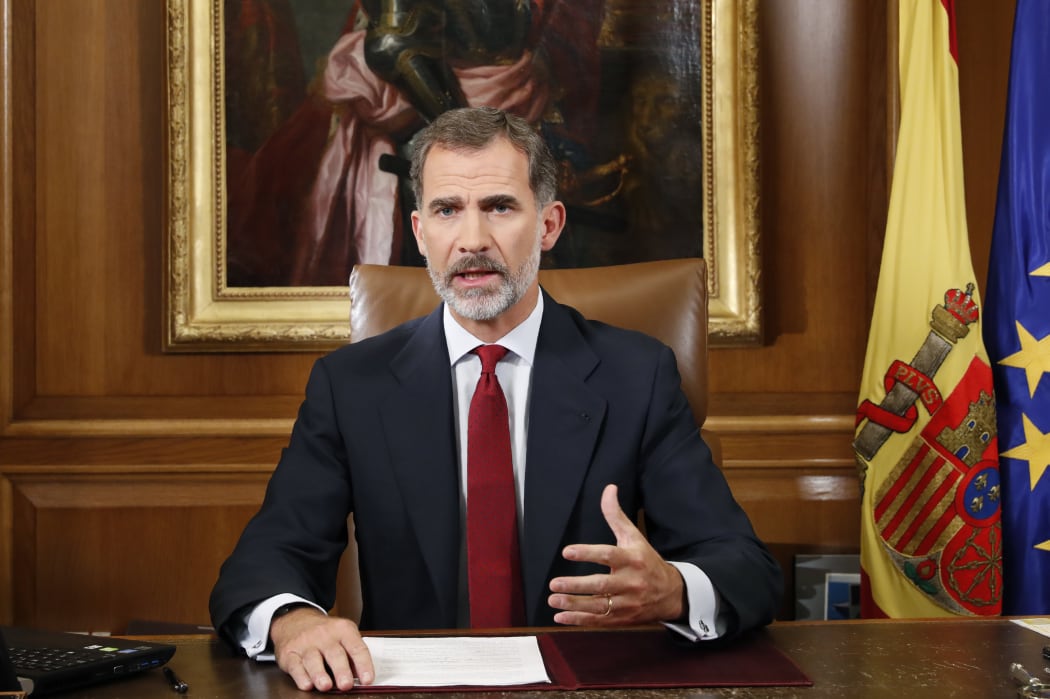
Spain's King Felipe VI addresses the nation in Madrid, as the country grapples with the independence drive in Catalonia. Photo: AFP PHOTO / HANDOUT CASA REAL / FRANCISCO GOMEZ
He branded the referendum in the north-eastern Spanish region illegal and undemocratic.
Meanwhile, Spain's high court has summoned the head of Catalonia's regional police force to testify as a suspect in a investigation of alleged sedition - inciting rebellion against the state.
Josep Lluís Trapero and three other people are expected to appear in court on Friday in a move likely to inflame sentiment further amid Spain's deepest political crisis in decades.
Opinion polls conducted before the vote suggested a minority of around 40 percent of residents in Catalonia backed independence. But a majority wanted a referendum to be held, and the violent police crackdown angered Catalans across the divide.
